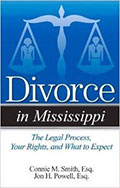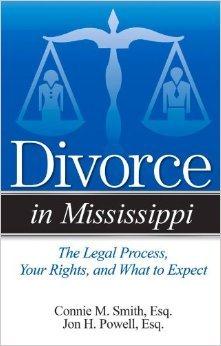REPORT FROM COUNSEL
SPRING 2013 ISSUE
AMERICAN TAXPAYER RELIEF ACT OF 2012
At the eleventh hour, Congress averted the tax side of the ominous "Fiscal Cliff" that it faced as 2012 drew to a close. The end result of the intense negotiations was the American Taxpayer Relief Act of 2012 (ATRA).
The most publicized part of ATRA prevented scheduled federal tax rate hikes from going into effect for most taxpayers in 2013, while raising taxes on America's highest earners. ATRA also keeps in place many expiring income tax breaks and revives some tax increases that had expired over the past several years.
Individual Tax Rates
For tax years beginning after 2012, ATRA makes permanent almost all of the federal income tax rates first put into place in 2001. Those rates otherwise would have increased in 2013. For high income taxpayers, a new top tax rate of 39.6%, as opposed to the previous 35%, applies beginning for tax years after 2012.
The new 39.6% rate applies to taxable income above a specified threshold (subject to future adjustments for inflation): $450,000 for married taxpayers filing jointly, $425,000 for heads of households, $400,000 for single taxpayers, and $225,000 for married taxpayers filing separately. The rate schedule is graduated, so taxpayers whose income falls within the 39.6% rate bracket still benefit from the extension of the Bush era rates in the lower rate brackets.
Capital Gains and Dividends
In recent years, individual and other noncorporate taxpayers have benefited from a maximum rate of 15% on net capital gains (net long term capital gains minus net short term capital losses). To the extent the net capital gains would have been taxed at the 10% or 15% tax rate if they had been ordinary income like wages, the net capital gains tax rate has been 0%.
These net capital gains rates for noncorporate taxpayers had been scheduled to be replaced after 2012 by rates up to 20%. ATRA operates to make the 2012 net capital gains rates of 0% and 15% permanent for most taxpayers. A new 20% maximum net capital gains rate applies to taxpayers whose income exceeds the levels mentioned above concerning the 39.6% income tax rate.
In 2012, qualified dividends from domestic corporations and certain foreign corporations were subject to the same maximum rates as net capital gains in 2012 (15% for most taxpayers, 0% if the income would otherwise be taxed in the 10% or 15% income tax brackets). These dividends were to have been taxed as ordinary income starting in 2013, resulting in substantially higher taxes, but ATRA intervened to retain the 2012 dividend rates of 15% and 0% for most taxpayers. As with capital gains, higher income taxpayers whose income exceeds the thresholds set for the 39.6% income tax rate now have a maximum rate of 20% on qualified dividends.
Personal Exemption Phaseout and Limitation of Itemized Deductions
Before 2010, the personal exemptions available to higher income taxpayers were gradually reduced when their adjusted gross income (AGI) exceeded a specific threshold amount. Those higher income individuals also had their allowable itemized tax deductions for the year reduced by up to 80%. By law, the personal exemption phaseout and itemized deduction limitation were gradually reduced, until they were completely removed in 2010. The exemption phaseout and deduction limitation were set to return in 2013. ATRA revives them, at higher threshold levels than had been in place. The end result is that the personal exemption phaseout and itemized deduction limitation will likely affect many more people than just those in the new 39.6% top tax bracket.
ATRA also includes extensions of a variety of individual tax benefits that either expired at the end of 2011, or would have at the end of 2012. Just a few examples of these many benefits are the Child Tax Credit, the State and Local Sales Tax Deduction, the Earned Income Credit, the Coverdell Education Savings Accounts, IRA Distributions to Charities (by persons age 701/2 or older), and the Energy Credit.
Estate and Gift Tax
For 2012, the maximum federal estate tax rate was 35%, with an exclusion amount of $5.12 million ($5 million indexed for inflation) that shelters an aggregate amount of transfers at death and lifetime gifts from estate and gift tax. But for ATRA, this top rate and exclusion amount were set to expire after 2012, resulting in a highest tax rate of 55% and an exclusion amount of only $1 million (not indexed for inflation).
ATRA permanently sets the top federal estate tax and gift tax at 40% with an exclusion of $5 million (inflation adjusted) for decedents dying and gifts made after 2012. ATRA also permanently allows "portability" of a decedent's unused exclusion between spouses.
Included among the other parts of ATRA are provisions that extend the estate tax deduction for state estate taxes, qualified conservation easements, and the installment payment of estate tax on closely held businesses. ATRA repeals the 5% surtax on estates larger than $10 million.
ARBITRATION AGREEMENTS CAN GO TOO FAR
Strong public policies support the appropriate use of arbitration over litigation in settling legal disputes and, in fact, such policies underlie the Federal Arbitration Act. That said, an agreement to arbitrate disputes is subject to well established principles rooted in the law of contracts. This means, among other things, that courts will step in and declare void an ostensible agreement to arbitrate if its effects are too heavily weighted in one party's favor. Two recent examples of this overreaching by the more powerful party illustrate the point.
In the first case, a former employee sued his former employer under the Fair Labor Standards Act for overtime wages. A federal appellate court prevented the employer from enforcing an arbitration agreement that was in the company's employee handbook. The fatal flaw in the arbitration provision was that rather than being a legitimate contract, the bargain was "illusory," a legal term meaning that one party, the employer, could effectively avoid its promise to arbitrate by amending the provision or even terminating it altogether.
Although the employer was required to provide an official written notice of any changes to the handbook, a change in terms clause gave the employer the "right to revise, delete, and add to the employee handbook" with retroactive effect. There was no savings clause excepting pending disputes from any changes made by the employer.
In the second case, the lopsided bargain that led a court to declare an arbitration agreement unenforceable was more a matter of dollars and cents. A couple purchased a home, contingent upon a satisfactory home inspection. They engaged the services of a home inspection company, which had an arbitration clause in its standard contract. The couple signed the contract, but its most objectionable parts were tucked away in the contract, either in fine print, or hidden among other clauses, or both.
The contract's provisions relating to arbitration were so one sided in favor of the home inspection company that it effectively "exculpated" the company from liability in a way that violated public policy. In particular, the contract limited the clients' recovery from the inspector for a negligent inspection to the $285 contract fee; it also required binding arbitration of any dispute, even requiring the party seeking arbitration to pay, among other costs, an initial arbitration fee of $1,350, plus $450 per day after the first day of a hearing.
In short, clients could well end up paying out in fees and costs many times the maximum amount they could recover from the company. Also influencing the court's decision were the facts that home inspection services are generally thought suitable for public regulation and that the services provided by home inspectors are a matter of practical necessity for their clients and are crucial to the clients' decision to purchase a home.
To top it off, the court noted that the wife, who had been primarily responsible for the house purchase, had only a high school diploma and no expertise or experience in home construction and that the couple had never purchased a home and were entirely at the mercy of the inspector, without any means of protection if the inspector performed a careless inspection.
FACEBOOK POSTING LEADS TO AN "F"
We all know that the right of free speech has its limits. There is no right to shout "Fire!" in a crowded theater. Those limits apply even in settings most closely associated with the free exchange of ideas, such as colleges and universities. In that academic setting, limits also exist even for speech that takes place off campus, such as on a social networking website, but that is connected to a student's academic program.
A student in a state university's mortuary science program learned these constitutional law lessons the hard way when the university gave her a failing grade in an anatomy class and imposed other sanctions against her for comments she had posted, to hundreds of her "friends," on her Facebook account.
The hard lesson for the student continued when a state high court rejected her lawsuit asserting that the disciplinary measures were invalid because they were an infringement of her right to free speech. Of course, words matter, so what the student had actually said was pivotal to the outcome of her case.
While she was taking an anatomy lab, the student posted what she thought were humorous comments about a cadaver she had been assigned to dissect. That was bad enough, but the student also posted a comment about wishing to "stab a certain someone in the throat" with an embalming instrument.
Not surprisingly, university officials were not amused when they learned of the postings, though the student portrayed her remarks as "satirical." But the university's defense of the subsequent disciplinary actions rested on more than just the sensibilities of the university officials—though, to be sure, the whole story caused much embarrassment and a public relations problem for the school.
The student's postings, in which she gave the cadaver a name derived from a comedy film about a corpse and wrote about "playing" with the cadaver, taking her "aggression" out on it, and keeping a "[l]ock of hair" in her pocket, resulted in letters and calls to the university's anatomy bequest program from donor families and the public.
Most importantly from a legal standpoint, the student's conduct violated clear program rules prohibiting both disrespectful conversational language outside the laboratory about cadaver dissection and Internet blogging about cadaver dissection or the anatomy lab. In order to be in the mortuary science program, the student was aware of, and had to agree to abide by, such rules. There is no free speech infringement when the conduct in question, as in this case, violates academic program rules that are narrowly tailored and directly related to established professional conduct standards.
Even as it rejected the student's First Amendment contentions, the court acknowledged some settled principles of law that could allow free speech claims by students to succeed when based on more defensible factual scenarios. A university's interest in academic freedom does not immunize the university altogether from First Amendment challenges.
For example, a university generally cannot use a code of ethics as a pretext for punishing a student's protected speech; nor can it impose a course requirement that forces a student to agree to otherwise invalid restrictions on her free speech rights. But a university can discipline students for violation of professional conduct standards that are in keeping with the academic environment of the student's particular program of study.
FINANCIAL FRAUD AGAINST THE ELDERLY
It is a sad and sobering reality that scam artists intent on committing financial fraud or the outright stealing of money, property, or valuable information prey upon vulnerable senior citizens. The threats can take many forms, but the elderly and those watching out for them can have some measure of protection by taking a few basic precautions.
- Do your homework when selecting a professional advisor, even if the advisor comes highly recommended by a friend or family member. This means confirming that the person is registered or licensed and has not left a trail of mistreatment of other clients.
- Powers of attorney (POA) are helpful, maybe even essential, as age takes its toll on an individual's capacity to handle financial matters. But the potential for misuse of a POA is great, since the appointed person generally has free rein to do whatever the elderly person could do on his or her own. The selected person must be trustworthy, and it is a good idea to have an attorney review the POA document.
- The array of account numbers, Social Security numbers, pins, passwords, and other such sensitive information that most of us accumulate over time can serve as a thief's key for raiding your savings and investments. Guard this information carefully.
- It may be an after the fact measure, but check your credit card and bank account statements carefully for any unauthorized or suspicious transactions. If you see one, contact the financial institution right away.
- Reverse mortgages allow homeowners who are at least 62 years old to borrow money from the equity in their homes. This device has its place under the right set of circumstances, but a reverse mortgage can also become a device for scam artists. Be wary of deceptive, too good to be true offers and high pressure tactics.
EMPLOYERS COMBAT FMLA ABUSE
The federal Family and Medical Leave Act (FMLA) gives eligible employees the right to up to 12 weeks of leave per year, which may be taken intermittently for certain specified reasons, including the care of designated family members with serious health conditions.
The FMLA also prohibits an employer from interfering with, restraining, or denying the exercise of or the attempt to exercise any right given under the FMLA. One of the bases upon which an employer can defeat an FMLA "interference" claim is a showing by the employer that an employee did not, in fact, take leave for a purpose authorized under the FMLA. Naturally, the availability of this defense has prompted some employers to undertake investigations of (some might say "spying on") employees suspected of abusing the rights afforded by the FMLA.
At least two federal courts of appeals have effectively allowed at least some degree of employee surveillance by holding that in order to defeat an FMLA interference claim based on an employee's asserted right to reinstatement, an employer need only show that it refused to reinstate the employee based on an "honest suspicion" that the employee was abusing his or her leave. Sometimes the basis for such a suspicion is produced by detective work of the kind engaged in by private investigators.
In one such case, the employer had an honest suspicion that an employee had misused his FMLA leave and, therefore, the employer's decision to terminate the employee did not interfere with the employee's right to reinstatement. The employer suspected that based upon the employee's prior absenteeism, the employee was misusing his FMLA leave, so the employer hired a private investigator to observe the employee on a day for which he had requested FMLA leave to care for his mother. Video surveillance revealed that the employee did not appear to leave his house that day.
When the employer questioned him, the employee could not recall what he had done on that day, but he asserted that he had not misused his FMLA leave. Although the employee later provided supportive documentation from his mother's nursing home and doctor's office, the paperwork did not clear the air but, rather, only raised further questions for the employer, as the documents were facially inconsistent and conflicted with the employer's internal paperwork.
In a second case, an employer was found to have had an honest belief that an employee had committed disability fraud in taking FMLA leave and, therefore, his termination for such fraud was found not to have been a pretext for FMLA retaliation.
It was not disputed that the employee suffered from a herniated disc and sciatica. However, although the employee had been approved for disability leave based upon his having reported excruciating pain and an inability to stand for more than 30 minutes, coworkers saw him at an Oktoberfest festival a few days later without any indication that his movements were painful or restricted. In fact, he was also able to walk 10 blocks and remain at the crowded festival for 90 minutes.
The employer's investigation included interviews with the coworkers, and the employee was permitted to submit documentation and other evidence in his defense. Still, when the dust settled, the court ruled that the employer had acted within its rights in terminating the employee. Importantly, the decisive question that sealed the employee's fate was not whether he had actually committed fraud, but whether his employer reasonably and honestly believed that he had.





